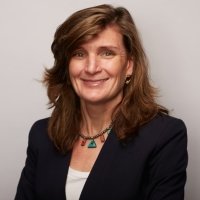Setting the Stage for 2018: Will Women Move the Needle in the U.S. Midterm Elections?
2018 has already been hailed as a new “Year of the Woman.” Early evidence suggests that an unprecedented number of women are stepping up to run for office. As 2018 midterm elections approach, the country is asking: is this the year women leaders break through barriers to achieve higher representation in government?
The answer to this question is not simple. A wide range of factors, political and nonpolitical, will determine whether the thousands of women running can successfully navigate paths to leadership. Despite the increased interest in running for political office, many barriers remain to increasing representation on Capitol Hill where women are only 20% of lawmakers – and in the states, where there are only 6 female governors.
In celebration of International Women's Day, the Women in Public Service Project and POLITICO convened experts, strategists, and pollsters to decode the complex factors that influence women’s pathways to leadership and what this could mean for the U.S. midterm elections in November.
The two conversations highlighted the historic momentum of this election year.
Selected Quotes
Kelly Dittmar
"Our numbers for women running… are 420 in the House, 50 running for the Senate, and for gubernatorial races, we are up to 80 potential women candidates. These are all record-setting."
"We have black women that are energized and ready to run, but they are often being pushed into majority-minority districts only and are not being looked at as a state-wide candidate."
Emily Liner
"We are seeing women from every walk of life raise their hands and say that they want to run for office."
"Women everywhere are realizing that if they are the ones spotting the problems in their communities, they are the best-positioned to create the change they wish to see."
Carol McDonald
"I think [that] looking at what women are doing writ large… is a metric and is a barometer and it tells us something about where we are headed as a country."
"Of over the 12,000 people that have been elected to Congress… there have only been 38 black women that have served in that Congress, so we are making incremental gains there."
"It is astounding how the political establishment in Georgia has mobilized against Stacey Abrams out of fear that they don’t think a black person or a black woman can win state-wide and the energy that they are putting in erecting road blocks on her candidacy… It’s shameful, and the numbers don’t support that fear."
Andrea Bozek
"As important as it is…to get women to run, we have to get women to win, and that is really difficult."
"I think that [the MeToo Movement] is an opportunity for women to run, to be a voice for the movement on both sides of the aisle… and maybe we can get some more women in Congress because of it."
Missy Egelsky
"Women don’t necessarily vote for women candidates just because they’re women; it’s about their issues and agenda."
"People think that women [as] decision-makers... bring to government a different kind of attitude and willingness to work with people."
Margie Omero
"Women candidates don’t need to be better than men candidates for us to say they deserve parity. They just deserve parity…We don’t need to lionize them as this superior class of candidates. They can be just as wonderfully flawed as everyone else."
"I think that we need to think about women candidates, women voters, and women’s issues… Bringing all of those together is what’s important for a woman to be successful in 2020."
header photo courtesy of Jim Horn via Flickr (CC BY-NC-ND 2.0)
Speakers

Hosted By

Global Women's Leadership Initiative
The Global Women’s Leadership Initiative has hosted the Women in Public Service Project at the Wilson Center since June, 2012. The Women in Public Service Project will accelerate global progress towards women’s equal participation in policy and political leadership to create more dynamic and inclusive institutions that leverage the full potential of the world’s population to change the way global solutions are forged. Read more
